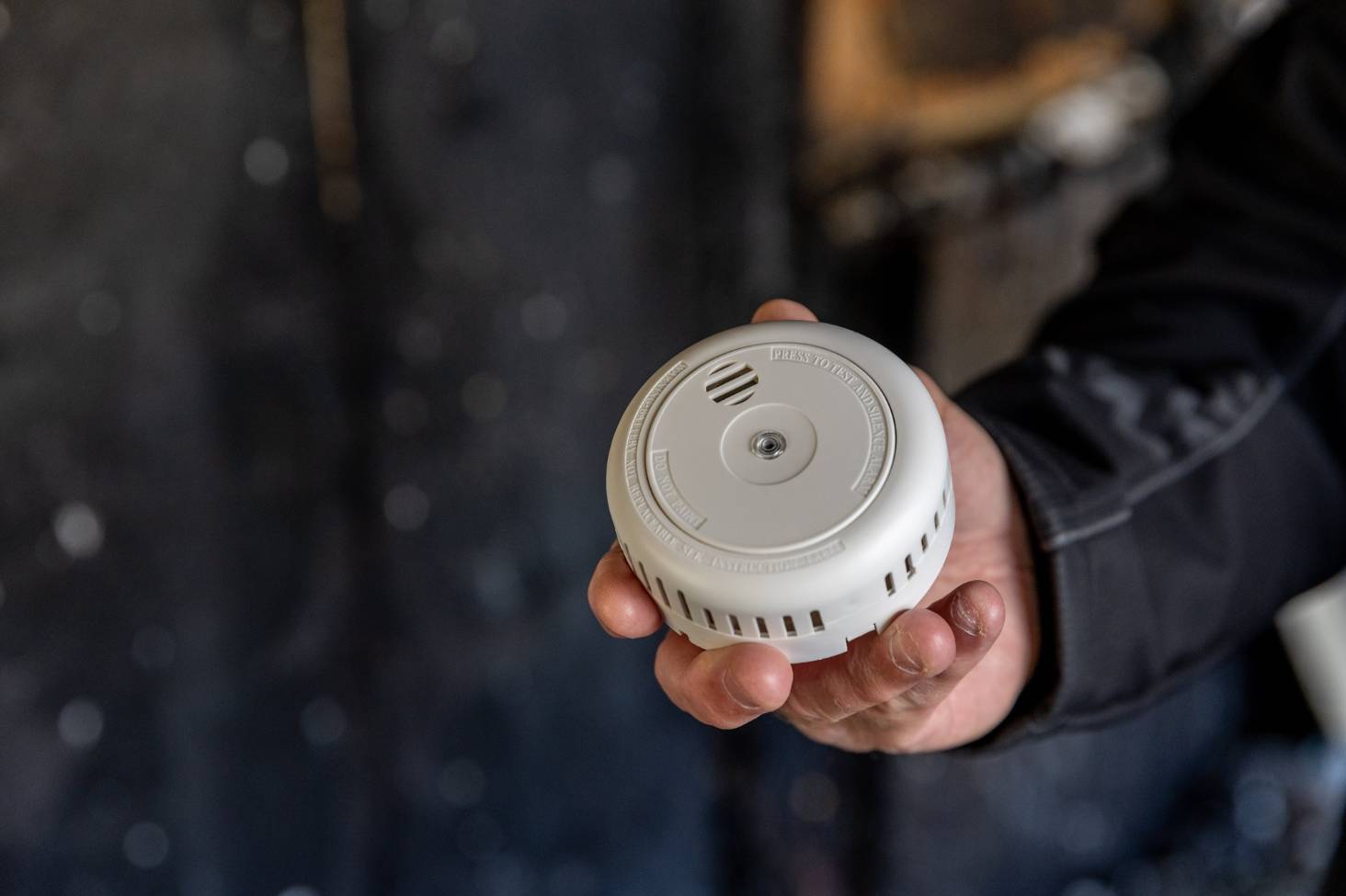

Articles
Why Would Smoke Detector Go Off Randomly
Modified: February 24, 2024
Discover the reasons why your smoke detector may go off randomly and find helpful articles to troubleshoot and prevent false alarms.
(Many of the links in this article redirect to a specific reviewed product. Your purchase of these products through affiliate links helps to generate commission for Storables.com, at no extra cost. Learn more)
Introduction
Welcome to the world of smoke detectors, where random alarms can disrupt the peace and leave you wondering why your smoke detector seems to have a mind of its own. We rely on smoke detectors to keep us safe by detecting the presence of smoke and alerting us to potential fires. But when those alarms go off unexpectedly and without any apparent reason, it can be frustrating and worrisome.
So, why would a smoke detector go off randomly? In this article, we will explore the common causes behind these random alarms and provide some troubleshooting tips to help you address the issue. By understanding the underlying reasons, you can take appropriate actions to ensure your smoke detector functions optimally and only sounds the alarm when there is a genuine fire threat.
Let’s dive into the common causes of random smoke detector alarms and how to troubleshoot them effectively.
Key Takeaways:
- Regularly cleaning and testing smoke detectors, replacing batteries, and addressing potential causes of false alarms are essential for ensuring reliable fire detection and minimizing unnecessary disruptions.
- Seeking professional assistance is crucial if random smoke detector alarms persist despite maintenance efforts, ensuring optimal protection for your home and loved ones.
Read more: Why Would Your Smoke Detector Go Off?
Common Causes of Random Smoke Detector Alarms
There are several factors that can lead to a smoke detector going off randomly. Understanding these common causes can help you pinpoint the issue and take appropriate action. Here are some of the most typical reasons behind random smoke detector alarms:
- 1. Malfunctioning Sensors: Over time, smoke detectors can develop issues with their sensors. These sensors are designed to detect smoke particles in the air, but if they become faulty or dirty, they may interpret other particles or elements as smoke, triggering a false alarm.
- 2. Low Battery: A low battery is another common culprit behind random smoke detector alarms. When the battery power is running low, the detector may not function properly and may produce false alarms as a warning sign. Regularly checking and replacing the batteries is crucial to avoid such occurrences.
- 3. Dust and Debris: Accumulation of dust and debris inside the smoke detector can interfere with its sensors and cause them to malfunction. It is essential to keep the device clean by regularly dusting it or using a vacuum cleaner with a soft brush attachment.
- 4. High Humidity or Temperature: Extreme humidity or temperature can cause fluctuations in air particles, which can trigger the smoke detector. Ensure your smoke detector is installed in a suitable location away from areas prone to high humidity or temperature changes.
- 5. Steam from Showers or Cooking: Steam produced during showers or cooking can fill the air with moisture and particles that may trigger the smoke detector. It’s advisable to install a separate heat detector in areas like kitchens or bathrooms to prevent false alarms.
- 6. Insect Intrusion: Insects or small bugs can find their way into the smoke detector and interfere with the sensors. Regularly inspecting and cleaning the device can help prevent insect intrusion.
- 7. Electrical Interference: Electrical interference from nearby appliances, faulty wiring, or power surges can disrupt the operation of the smoke detector and lead to random alarms. Ensure that your smoke detector is properly installed and away from electrical sources.
By identifying the potential causes of random smoke detector alarms, you can take appropriate measures to troubleshoot and resolve the issue. Let’s explore some troubleshooting steps in the next section.
Key Takeaways:
- Regularly cleaning and testing smoke detectors, replacing batteries, and addressing potential causes of false alarms are essential for ensuring reliable fire detection and minimizing unnecessary disruptions.
- Seeking professional assistance is crucial if random smoke detector alarms persist despite maintenance efforts, ensuring optimal protection for your home and loved ones.
Read more: Why Would Your Smoke Detector Go Off?
Common Causes of Random Smoke Detector Alarms
Malfunctioning Sensors
Smoke detectors rely on sensors to detect the presence of smoke particles in the air. However, these sensors can sometimes malfunction, leading to random alarms. Here are a few reasons why sensors may malfunction:
- Build-up of Dust and Debris: Over time, dust and debris can accumulate on the sensors, interfering with their ability to accurately detect smoke. To resolve this issue, gently vacuum the smoke detector using a soft brush attachment. Avoid using harsh cleaning agents as they may damage the device.
- Aging Sensors: Like any electronic component, smoke detector sensors can wear out over time. If your smoke detector is old, the sensors may no longer be functioning as effectively as they should. In this case, you may need to replace the entire smoke detector to ensure reliable smoke detection.
- Faulty Sensors: In some cases, the sensors themselves may be faulty or damaged. This can happen due to manufacturing defects or physical damage to the device. If you suspect that the sensors are the cause of random alarms, it may be necessary to replace the smoke detector with a new one.
Regular maintenance and cleaning of your smoke detector can help prevent issues with malfunctioning sensors. It’s also recommended to periodically test your smoke detector to ensure proper functionality. If you continue to experience random alarms even after cleaning and testing, it may be necessary to consult a professional for further inspection and possible replacement of the smoke detector.
Remember, smoke detectors are essential for your safety and the safety of your loved ones. It’s important to address any issues promptly to ensure your smoke detector operates reliably when there is a genuine fire threat.
Low Battery
A common cause of random smoke detector alarms is a low battery. When the battery power drops below a certain level, the smoke detector may start producing false alarms as an indication that the battery needs replacement. Here are a few things to consider regarding low battery-related issues:
- Regular Battery Checks: It’s crucial to check the battery status of your smoke detector regularly. Most smoke detectors have a low battery indicator that will alert you when it’s time to replace the battery. Make it a habit to test the batteries at least once a month or according to the manufacturer’s instructions.
- Battery Replacement: When replacing the battery, use new, high-quality batteries recommended by the smoke detector manufacturer. Avoid using old or expired batteries, as they may not provide sufficient power and can lead to unreliable performance.
- Intermittent Chirping: Aside from false alarms, a low battery can also cause the smoke detector to emit intermittent chirping sounds. If your smoke detector is beeping at regular intervals, it’s a clear indication that the battery is low and needs to be replaced immediately.
- Backup Power: Some smoke detectors are hardwired into the electrical system of your home and may also have a backup battery in case of a power outage. Ensure that both the main power and backup battery are functioning properly to avoid random alarms.
It’s essential to address low battery issues promptly to ensure that your smoke detector remains in optimal working condition. Neglecting to replace the battery can compromise the device’s ability to detect smoke accurately and put your safety at risk. Make it a priority to keep your smoke detector’s battery power at an appropriate level to avoid unnecessary false alarms.
If you have replaced the battery and performed regular maintenance, but the smoke detector continues to go off randomly, it’s advisable to seek professional assistance to inspect the device and identify any underlying issues.
Read more: Why Would A Carbon Monoxide Detector Go Off
Dust and Debris
Another common cause of random smoke detector alarms is the buildup of dust and debris inside the device. Over time, dust particles can accumulate on the sensors and interfere with their proper functioning. Here are a few factors to consider regarding dust and debris-related issues:
- Regular Cleaning: It’s important to clean your smoke detector regularly to prevent the buildup of dust and debris. Use a soft brush attachment on your vacuum cleaner to gently remove any particles from the device. Avoid using water or cleaning agents, as they can damage the smoke detector.
- Proximity to Dusty Areas: If your smoke detector is located in an area prone to dust, such as a workshop or garage, it may require more frequent cleaning. Consider relocating the smoke detector to a cleaner area if possible.
- Renovation or Construction Work: Dust and debris generated during renovation or construction work can find their way into the smoke detector. If you have recently had work done in your home, it’s a good idea to check and clean the smoke detector afterwards to maintain its proper functioning.
- Outdoor Installation: If your smoke detector is installed outdoors, it may be more susceptible to dust and debris. Ensure that the device is properly sealed and protected from environmental elements to minimize the potential for false alarms.
By regularly cleaning your smoke detector and ensuring it’s located in a suitable environment, you can reduce the likelihood of false alarms caused by dust and debris. However, if the smoke detector continues to go off randomly even after cleaning, it may be necessary to seek professional assistance to inspect the device for any underlying issues.
Remember, maintaining a clean and well-functioning smoke detector is essential for reliable smoke detection and the safety of your home and loved ones.
High Humidity or Temperature
High humidity or temperature can cause smoke detectors to go off randomly. Fluctuations in air particles can be misinterpreted as smoke by the sensors, leading to false alarms. Here are a few factors to consider regarding high humidity or temperature-related issues:
- Proper Placement: Ensure that your smoke detector is installed in a suitable location away from areas prone to high humidity or temperature changes. Avoid placing the device near bathrooms, kitchens, or heating sources that can generate steam or heat.
- Ventilation: Adequate ventilation can help regulate humidity and temperature levels in your home. Good airflow can prevent the accumulation of moisture or heat in the vicinity of the smoke detector, reducing the likelihood of false alarms.
- Weather Conditions: External factors such as extreme weather conditions can also impact the operation of smoke detectors. For example, high levels of humidity during a rainy season or heatwaves can affect the sensors and trigger false alarms. In such cases, it’s important to ensure that your smoke detector is functioning properly and take appropriate measures to reduce false alarms.
By taking these factors into consideration and being mindful of your smoke detector’s placement, you can minimize false alarms caused by high humidity or temperature. However, if the smoke detector continues to go off randomly despite these precautions, it may be necessary to consult a professional for further inspection and assessment.
Remember, smoke detectors play a crucial role in ensuring your safety and the early detection of fire. Taking measures to address false alarms caused by high humidity or temperature can help maintain the device’s reliability and effectiveness in detecting genuine fire threats.
Steam from Showers or Cooking
Steam produced during showers or cooking can trigger smoke detectors and lead to false alarms. While these false alarms are often short-lived, they can still be inconvenient and cause unnecessary panic. Here are a few things to consider regarding steam-related issues:
- Separate Heat Detectors: In areas where steam is regularly generated, such as kitchens or bathrooms, it’s advisable to install separate heat detectors instead of smoke detectors. Heat detectors are specifically designed to detect temperature changes and are less sensitive to steam or cooking vapors.
- Proper Placement: If a heat detector is not available, ensure that your smoke detector is installed at a suitable distance from steam sources. Avoid placing it directly above stovetops, near steamy showers, or in close proximity to steam-producing appliances.
- Ventilation: Adequate ventilation can help dissipate steam and minimize its impact on smoke detectors. Ensure that your kitchen and bathroom have proper ventilation systems in place to reduce steam accumulation.
- Cleaning Regularly: The accumulation of cooking residues or steam particles on the smoke detector can cause it to malfunction and generate false alarms. Clean the smoke detector regularly using a soft brush attachment to remove any residue or particles that may interfere with its sensors.
By implementing these measures, you can reduce false alarms caused by steam from showers or cooking. However, if the smoke detector continues to go off randomly even after taking these precautions, it may be necessary to seek professional assistance to evaluate and resolve the issue.
Remember, false alarms can be inconvenient, but they shouldn’t deter you from maintaining a reliable smoke detection system. By addressing steam-related issues appropriately, you can ensure that your smoke detector accurately detects potential fire hazards while minimizing false alarms.
Insect Intrusion
Insects or small bugs finding their way into smoke detectors can interfere with their sensors and cause false alarms. Here are a few things to consider regarding insect intrusion:
- Regular Inspections: It’s important to regularly inspect your smoke detector for any signs of insect activity. Look for visible signs of bugs or nests near or inside the device. If you notice any, take appropriate measures to remove the insects and clean the smoke detector.
- Sealing the Smoke Detector: Ensure that the smoke detector is properly sealed to prevent insects from entering. Check for any gaps or openings around the device and seal them if necessary. This will help create a barrier and reduce the potential for insect intrusion.
- Outdoor Placement: If your smoke detector is installed outdoors, it may be more susceptible to insect intrusion. Consider using a smoke detector cover or enclosure specifically designed for outdoor use to protect it from bugs and other outdoor elements.
- Professional Inspection: If you continue to experience false alarms due to insect intrusion despite taking preventive measures, it may be necessary to seek professional assistance. A professional can inspect the smoke detector thoroughly, clean any insect debris, and address any underlying issues.
By taking proactive measures to prevent insect intrusion and regularly inspecting your smoke detector, you can minimize false alarms caused by these unwanted visitors. Remember, false alarms not only cause inconvenience but can also desensitize people to actual fire threats. Maintaining a bug-free smoke detector ensures that it will operate reliably when it truly matters.
Read more: Why Does Alexa Go Off Randomly
Electrical Interference
Electrical interference can be another cause of random smoke detector alarms. Various factors can disrupt the electrical signals within the smoke detector and trigger the alarm system falsely. Here are a few things to consider regarding electrical interference:
- Proper Installation: Ensure that your smoke detector is installed correctly and is away from potential sources of electrical interference. Keep the smoke detector at a safe distance from electronic devices, power cables, or electrical appliances that may emit electromagnetic fields.
- Faulty Wiring: Faulty wiring within the smoke detector or in the electrical system of your home can cause electrical interference. If you suspect wiring issues, it’s crucial to have a professional electrician inspect and resolve any wiring problems to ensure the proper functioning of the smoke detector.
- Power Surges: Power surges can disrupt the electrical signals within the smoke detector and trigger false alarms. To protect your smoke detector from power surges, consider using surge protectors or installing a voltage stabilizer to regulate the electrical current.
- Electromagnetic Interference: Nearby electronic devices, such as televisions, radios, or mobile phones, can emit electromagnetic waves that interfere with the smoke detector’s sensors. Keep these devices at a distance from the smoke detector to minimize the risk of false alarms caused by electromagnetic interference.
If you suspect electrical interference is the cause of random smoke detector alarms and you have taken precautionary measures without any improvement, it may be necessary to seek professional assistance. An electrician or a specialist can help identify the source of the interference and provide the necessary solutions to resolve the issue.
Remember, addressing electrical interference promptly is crucial for the reliable operation of your smoke detector. By eliminating or minimizing electrical interference, you can reduce false alarms and ensure that your smoke detector functions properly when there is a genuine fire threat.
Troubleshooting Random Smoke Detector Alarms
If you’re experiencing random smoke detector alarms, here are some troubleshooting steps you can take to address the issue:
- Check for Obvious Causes: Start by ensuring that there is no actual fire or smoke in the vicinity. Verify that the alarm is not being triggered by any visible signs of smoke or fire.
- Clean the Smoke Detector: Dust and debris can accumulate on the smoke detector’s sensors, causing false alarms. Gently clean the device using a soft brush attachment on a vacuum cleaner or a soft cloth to remove any particles that may be interfering with its operation.
- Test and Replace Batteries: Low battery power can lead to false alarms. Test the batteries and replace them with fresh ones if needed. Remember to use high-quality batteries recommended by the manufacturer.
- Reset the Smoke Detector: In some cases, a reset may be necessary to address false alarms. Refer to the user manual or contact the manufacturer for specific instructions on how to reset your smoke detector.
- Seek Professional Help if Needed: If the troubleshooting steps above do not resolve the issue, or if you suspect a more significant problem with your smoke detector, it’s advisable to seek professional assistance. A professional technician can inspect, diagnose, and repair any underlying issues with the device.
Remember, troubleshooting random smoke detector alarms requires a combination of basic maintenance and common sense. Regular cleaning, battery checks, and following the manufacturer’s guidelines can go a long way in ensuring the proper functioning of your smoke detector.
However, if you continue to experience random alarms despite your best efforts, it’s crucial to address the issue promptly. False alarms can desensitize people to actual fire threats and potentially lead to dangerous situations. Prioritize the safety of your home and loved ones by seeking professional help if needed.
Troubleshooting Random Smoke Detector Alarms
Check for Obvious Causes
When your smoke detector goes off unexpectedly, the first step in troubleshooting is to check for any obvious causes of the alarm. Here are a few things to consider:
- Look for Visible Signs of Smoke or Fire: Assess the immediate surroundings to see if there is any visible smoke or fire. If you notice any flames, smoke, or signs of a fire, evacuate the premises immediately and contact emergency services.
- Assess Nearby Appliances: Determine if any nearby appliances are emitting smoke, overheating, or malfunctioning. Faulty appliances can trigger smoke detector alarms, so be sure to check if any appliances are the source of the issue.
- Consider Cooking Activities: If the smoke detector is located near the kitchen, cooking activities such as grilling, frying, or high-heat cooking methods can generate smoke or steam. Evaluate if the alarm was triggered by cooking activity before assuming it is a false alarm.
- Other Sources of Smoke: Take into account other potential sources of smoke, such as candles, incense, or tobacco smoke. These can also trigger the smoke detector in close proximity.
By conducting a thorough assessment of your surroundings, you can determine if there is an actual fire or any visible signs of smoke that could be the cause of the alarm. If you identify a legitimate fire threat, follow proper safety protocols and seek immediate help.
However, if there are no evident signs of smoke or fire, you can proceed to the next troubleshooting steps to address the random smoke detector alarms.
Troubleshooting Random Smoke Detector Alarms
Clean the Smoke Detector
One of the common causes of random smoke detector alarms is the accumulation of dust and debris on the device’s sensors. Cleaning the smoke detector can help restore its proper functioning. Here’s how to clean your smoke detector:
- Turn Off the Power: Before cleaning, ensure that you turn off the power supply to the smoke detector to prevent any electrical accidents.
- Remove the Smoke Detector: Take the smoke detector down from the ceiling or wall mount carefully. Some smoke detectors twist off, while others may require you to unscrew them from the mounting plate.
- Inspect the Detector: Examine the device for any visible signs of dust or debris on the outer surface. Use a soft cloth or a brush attachment on a vacuum cleaner to gently wipe away any loose particles.
- Access the Inside: Depending on the smoke detector model, you may be able to open it to access the interior. Follow the manufacturer’s instructions to safely open the smoke detector without causing any damage.
- Clean the Sensors: Carefully clean the sensors by gently removing any dust or debris using a soft brush or compressed air. Avoid using water or cleaning agents that could damage the sensors. Be cautious not to touch or damage any internal components.
- Reassemble and Reinstall: Once the sensors are clean and free from particles, reassemble the smoke detector following the manufacturer’s instructions. Mount it securely back on the ceiling or wall.
- Power On and Test: After reinstalling, turn the power back on and test the smoke detector to ensure it is working properly. Press the test button and listen for the alarm sound.
Regularly cleaning your smoke detector can help maintain its functionality and prevent false alarms. It is recommended to clean the device at least once every six months or more frequently if you notice a significant buildup of dust or debris.
If you have cleaned the smoke detector but continue to experience random alarms, move on to the next troubleshooting steps to further address the issue.
Troubleshooting Random Smoke Detector Alarms
Test and Replace Batteries
A low battery can be a common cause of random smoke detector alarms. Testing and replacing batteries on a regular basis is essential to ensure optimal performance. Here’s how to test and replace the batteries in your smoke detector:
- Locate the Battery Compartment: Identify the battery compartment on your smoke detector. It is usually located on the back or side of the device.
- Prepare the Replacement Batteries: Obtain fresh, high-quality batteries recommended by the smoke detector manufacturer. Make sure you have the correct type and size of batteries required for your specific smoke detector model.
- Remove the Old Batteries: Open the battery compartment and carefully remove the old batteries. Note the orientation of the batteries to ensure proper replacement.
- Test the Batteries: Use a battery tester or insert the batteries into a compatible device to check their voltage level. Ensure that the batteries have sufficient power to function effectively.
- Replace with New Batteries: If the batteries are low or expired, insert the new batteries into the smoke detector. Follow the correct polarity, aligning the positive (+) and negative (-) ends as indicated.
- Secure the Battery Compartment: Close the battery compartment securely, ensuring it is properly sealed to prevent any disconnection or power interruption.
- Perform a Test: After installing the new batteries, press the test button on the smoke detector to verify its functionality. The alarm should sound to confirm that the smoke detector is working correctly.
- Set a Battery Replacement Schedule: Establish a routine to test and replace the batteries in your smoke detector. It is generally recommended to replace batteries at least once a year or according to the manufacturer’s guidelines.
Regularly testing and replacing batteries is crucial to ensure your smoke detector operates reliably. Low battery power can lead to false alarms or even complete failure of the device to detect smoke. By maintaining fresh batteries, you can mitigate the risk of random alarms caused by low battery voltage.
If you have replaced the batteries and continue to experience random smoke detector alarms, proceed to the next troubleshooting steps to further address the issue.
Troubleshooting Random Smoke Detector Alarms
Reset the Smoke Detector
If you have tried cleaning and replacing the batteries in your smoke detector but are still experiencing random alarms, it may be necessary to reset the device. Resetting the smoke detector can help resolve any internal issues that may be causing the false alarms. Here’s how to reset your smoke detector:
- Turn Off the Power: Before proceeding with the reset, ensure that you turn off the power supply to the smoke detector to prevent any electrical accidents.
- Locate the Reset Button: Look for a reset button on the smoke detector. The button is typically labeled “Reset” or indicated by a small hole that requires a pin or paperclip to press.
- Press and Hold the Reset Button: Using a pin or paperclip, press and hold the reset button for about 15-20 seconds. Hold the button until you hear a beep or see a visual indication, indicating that the reset has been successful.
- Power On the Smoke Detector: Once the reset is complete, restore the power to the smoke detector by turning it back on. Wait a few moments for the device to initialize and activate.
- Perform a Test: After resetting and powering on the smoke detector, press the test button to verify that the device is functioning correctly. The alarm should sound, indicating that the smoke detector is operating as expected.
Resetting the smoke detector clears any internal issues that may have caused the false alarms. It essentially restarts the device and allows it to re-establish proper functionality. If the random alarms persist after resetting the smoke detector, additional troubleshooting or professional assistance may be required to resolve the issue.
Remember, proper maintenance, including cleaning, battery replacement, and periodic resetting, is essential to keep your smoke detector in optimal working condition. By following these troubleshooting steps, you can address random smoke detector alarms and ensure the accuracy and reliability of your smoke detection system.
Troubleshooting Random Smoke Detector Alarms
Seek Professional Help if Needed
If you have gone through the previous troubleshooting steps and are still experiencing random smoke detector alarms, it may be necessary to seek professional assistance. Here’s when you should consider reaching out to a professional:
- Persistent False Alarms: If you continue to experience random smoke detector alarms despite performing the recommended maintenance and troubleshooting steps, it’s advisable to consult a professional. They have the expertise and specialized equipment to diagnose and resolve complex issues.
- Age of the Smoke Detector: If your smoke detector is old and has reached its typical lifespan, it may be more prone to malfunctions and false alarms. In such cases, it’s a good idea to have the smoke detector replaced by a professional to ensure reliable smoke detection.
- Suspected Wiring or Electrical Issues: If you suspect that the false alarms are caused by faulty wiring, power surges, or other electrical issues, it’s important to consult an electrician or professional technician. They can inspect and address any electrical problems to ensure the proper functioning of your smoke detector.
- Manufacturer Support: If your smoke detector is still under warranty, it’s recommended to contact the manufacturer’s support team for assistance. They can provide guidance, additional troubleshooting steps, or facilitate a replacement if necessary.
Professional help can provide the expertise needed to diagnose and resolve any underlying issues causing the random smoke detector alarms. They will have the knowledge and equipment to thoroughly inspect the device, ensure proper installation, and address any complex technical problems.
Remember, the safety of your home and loved ones is paramount. If you’re unsure or concerned about the reliability of your smoke detector, seeking professional help is a prudent step to ensure optimal protection against fire hazards.
Conclusion
Random smoke detector alarms can be frustrating and concerning, but understanding the common causes and implementing troubleshooting steps can help resolve the issue and ensure the reliable operation of your smoke detector. We have explored several potential causes of random alarms, including malfunctioning sensors, low battery, dust and debris, high humidity or temperature, steam from showers or cooking, insect intrusion, and electrical interference.
By checking for obvious causes, cleaning the smoke detector, testing and replacing batteries, resetting the device, and seeking professional help when needed, you can address these issues effectively. Regular maintenance and proper troubleshooting are crucial to ensuring your smoke detector functions optimally and provides accurate detection of smoke and fire hazards.
Remember to follow manufacturer guidelines, establish a routine for maintenance tasks, and stay proactive in addressing any issues that arise. Regularly cleaning the smoke detector, replacing batteries, and performing necessary resets will help minimize the occurrence of false alarms and ensure that your smoke detector is always ready to provide reliable protection for you and your family.
If you continue to experience random alarms despite your efforts, seeking professional assistance is recommended. Professionals can conduct in-depth inspections, diagnose complex issues, and provide expert solutions to ensure the proper functioning of your smoke detector.
By maintaining a well-functioning smoke detector and taking prompt action in response to false alarms, you can enhance the safety and security of your home, giving you peace of mind knowing that you have a reliable early warning system in place should a fire emergency occur.
Frequently Asked Questions about Why Would Smoke Detector Go Off Randomly
Was this page helpful?
At Storables.com, we guarantee accurate and reliable information. Our content, validated by Expert Board Contributors, is crafted following stringent Editorial Policies. We're committed to providing you with well-researched, expert-backed insights for all your informational needs.
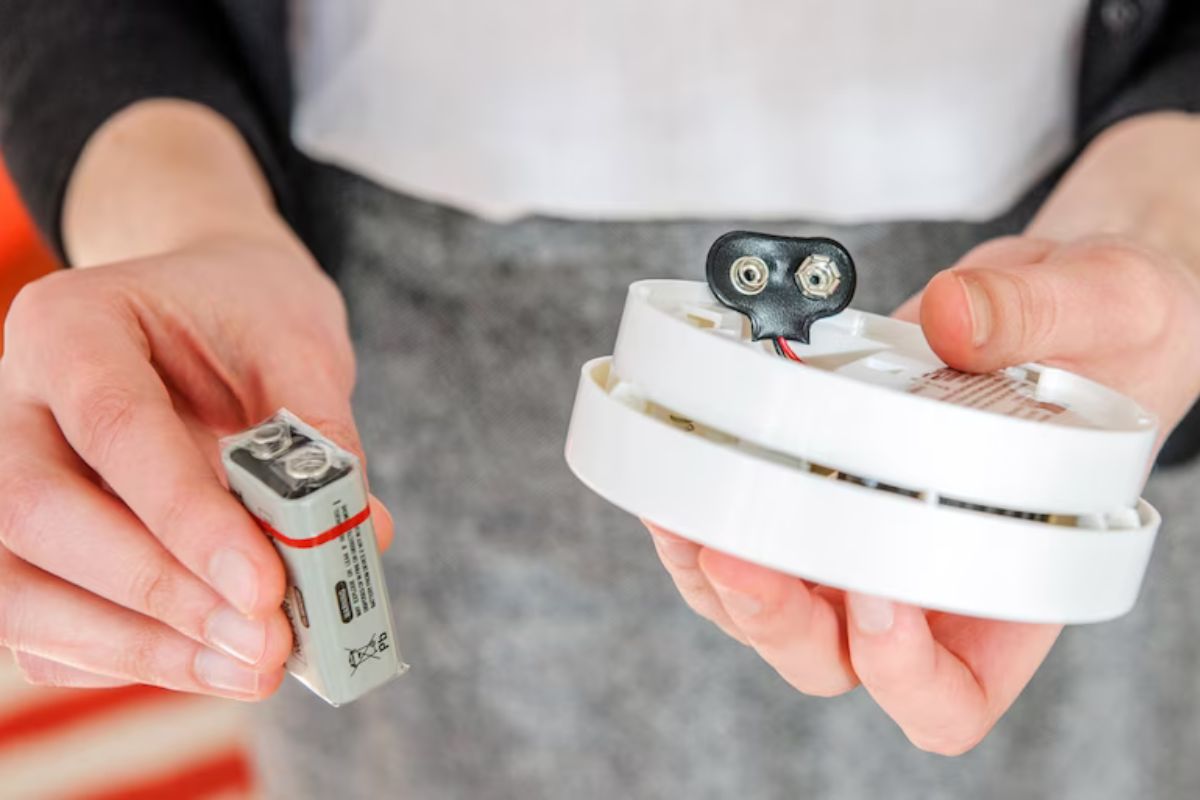
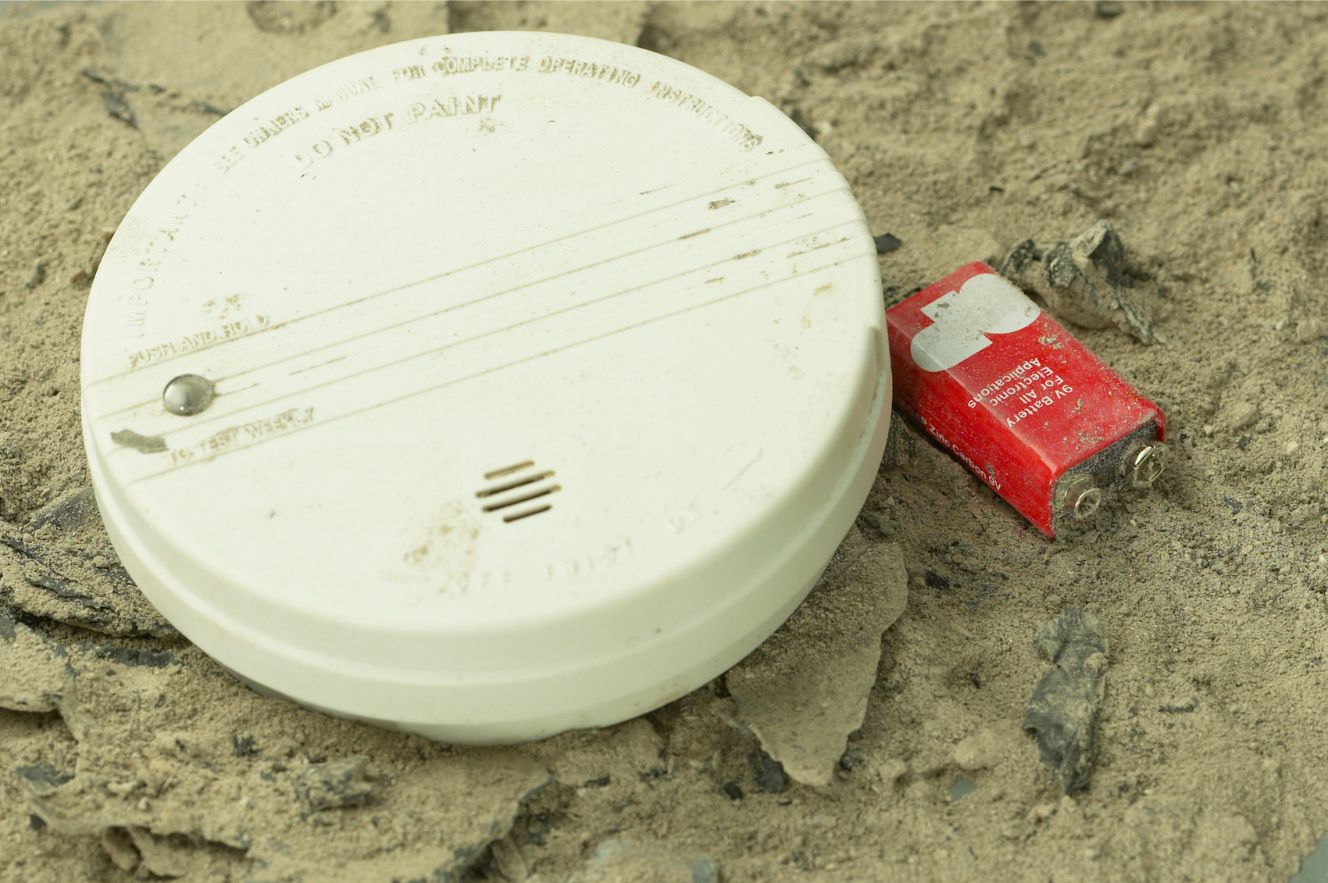
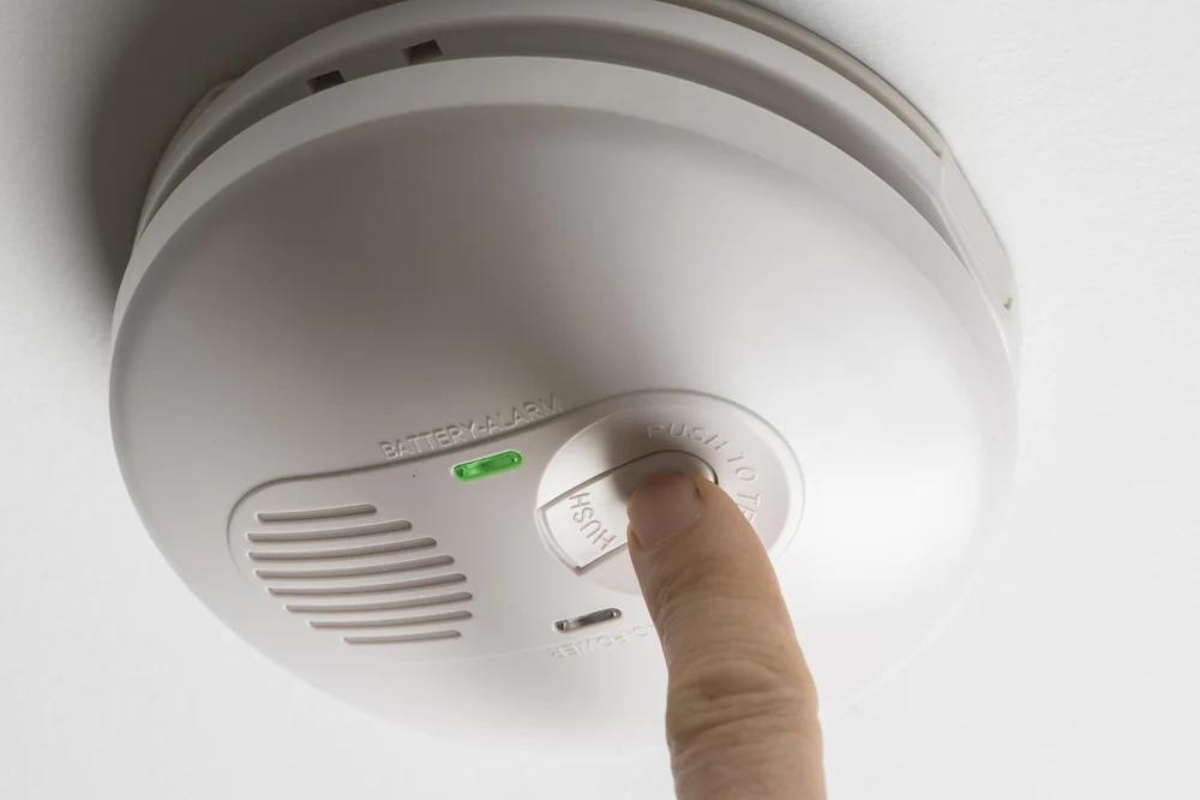
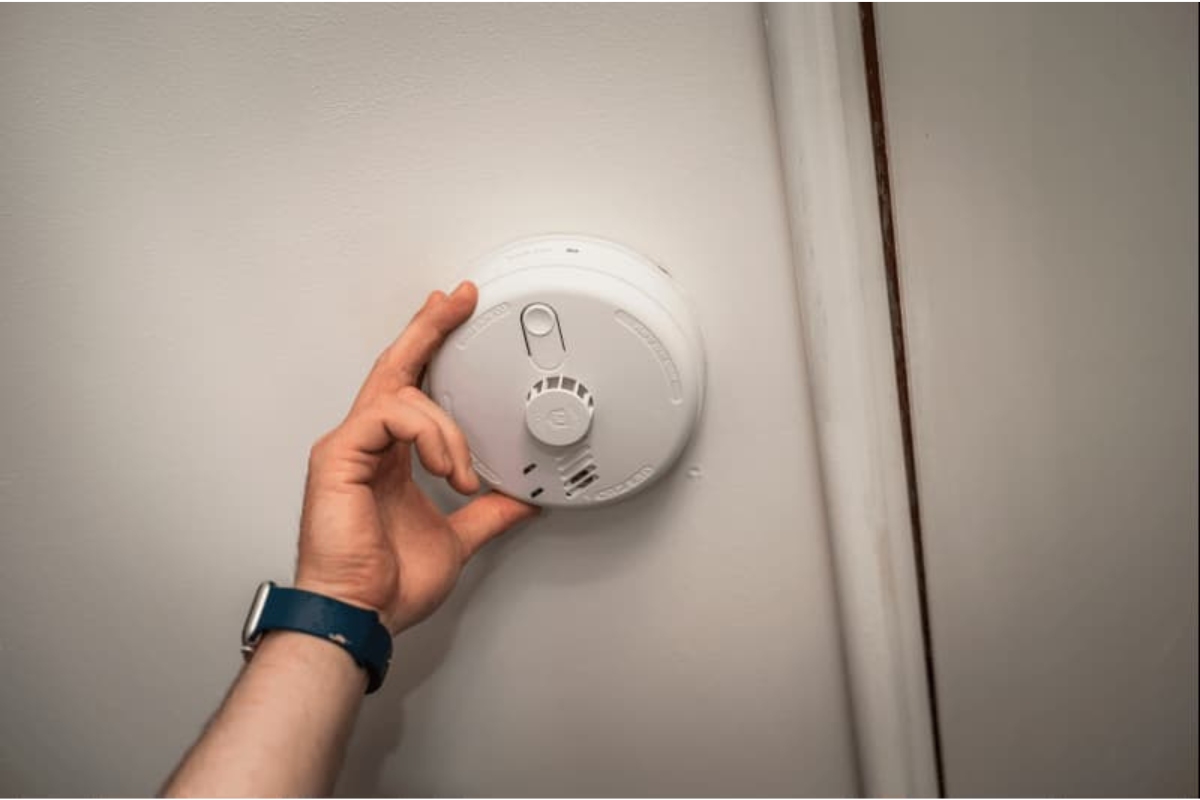

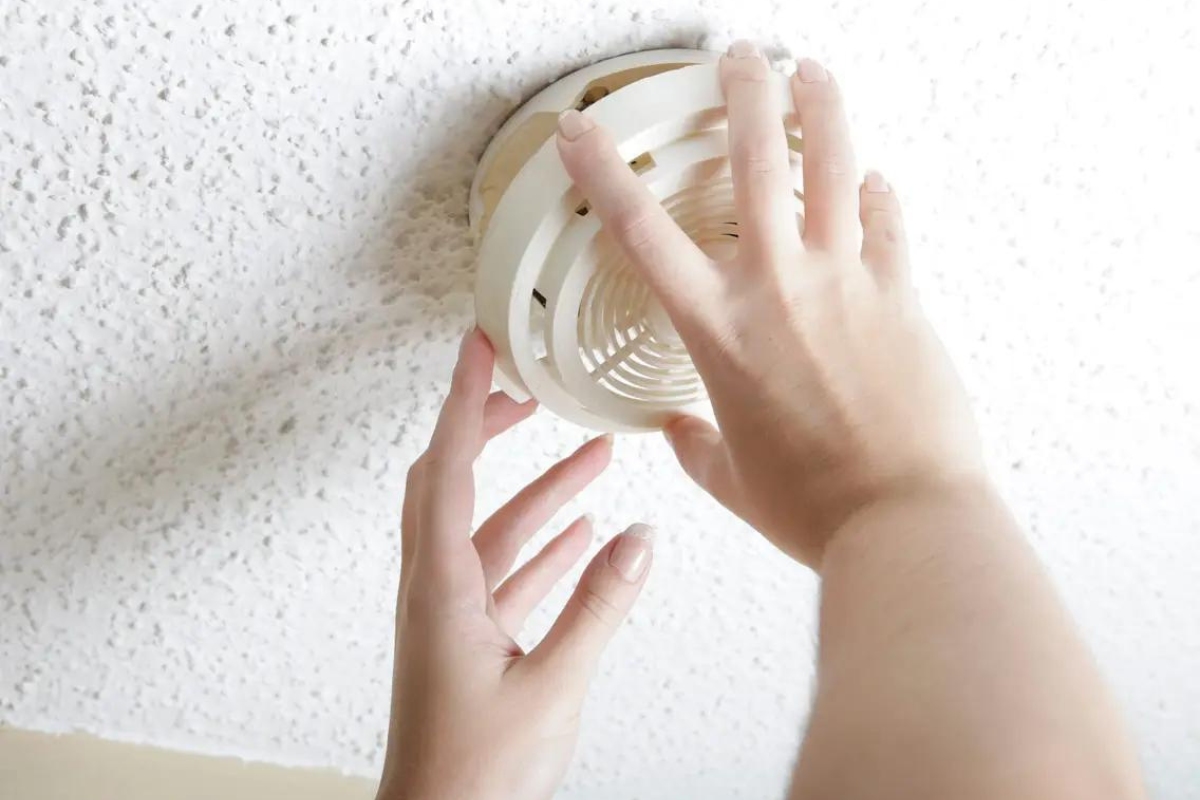
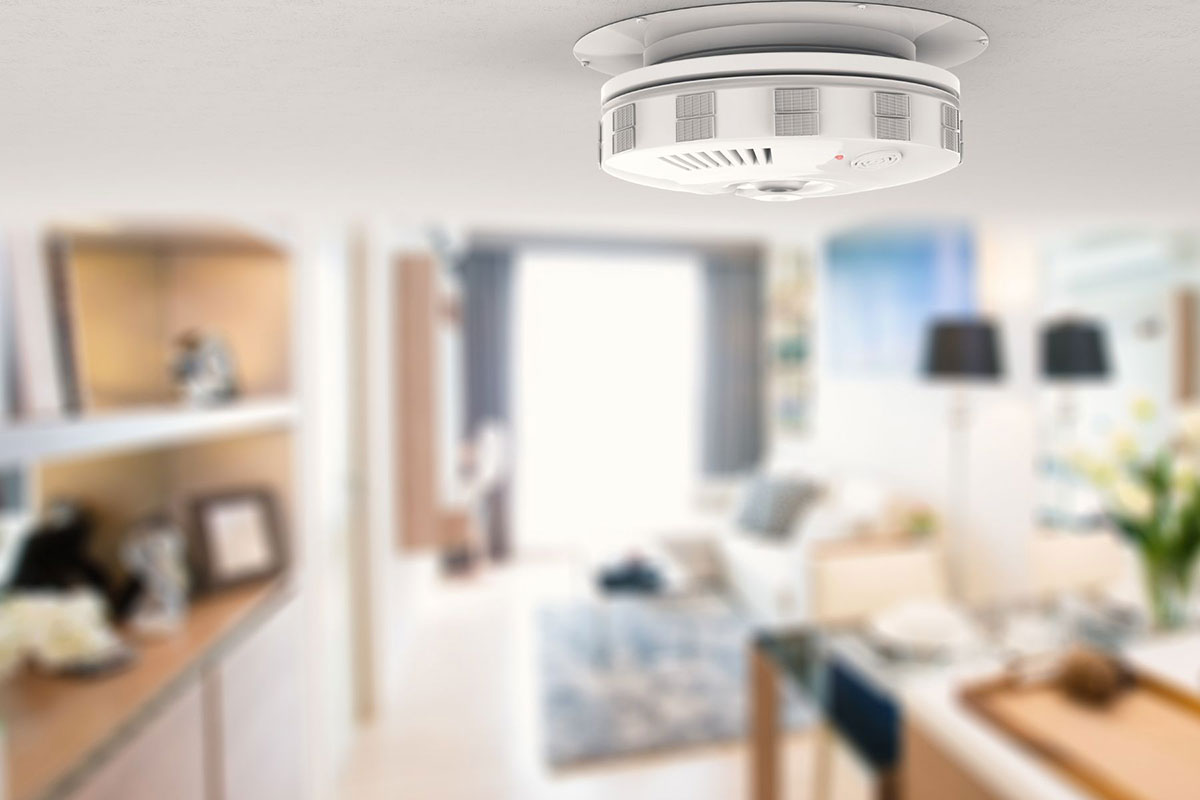
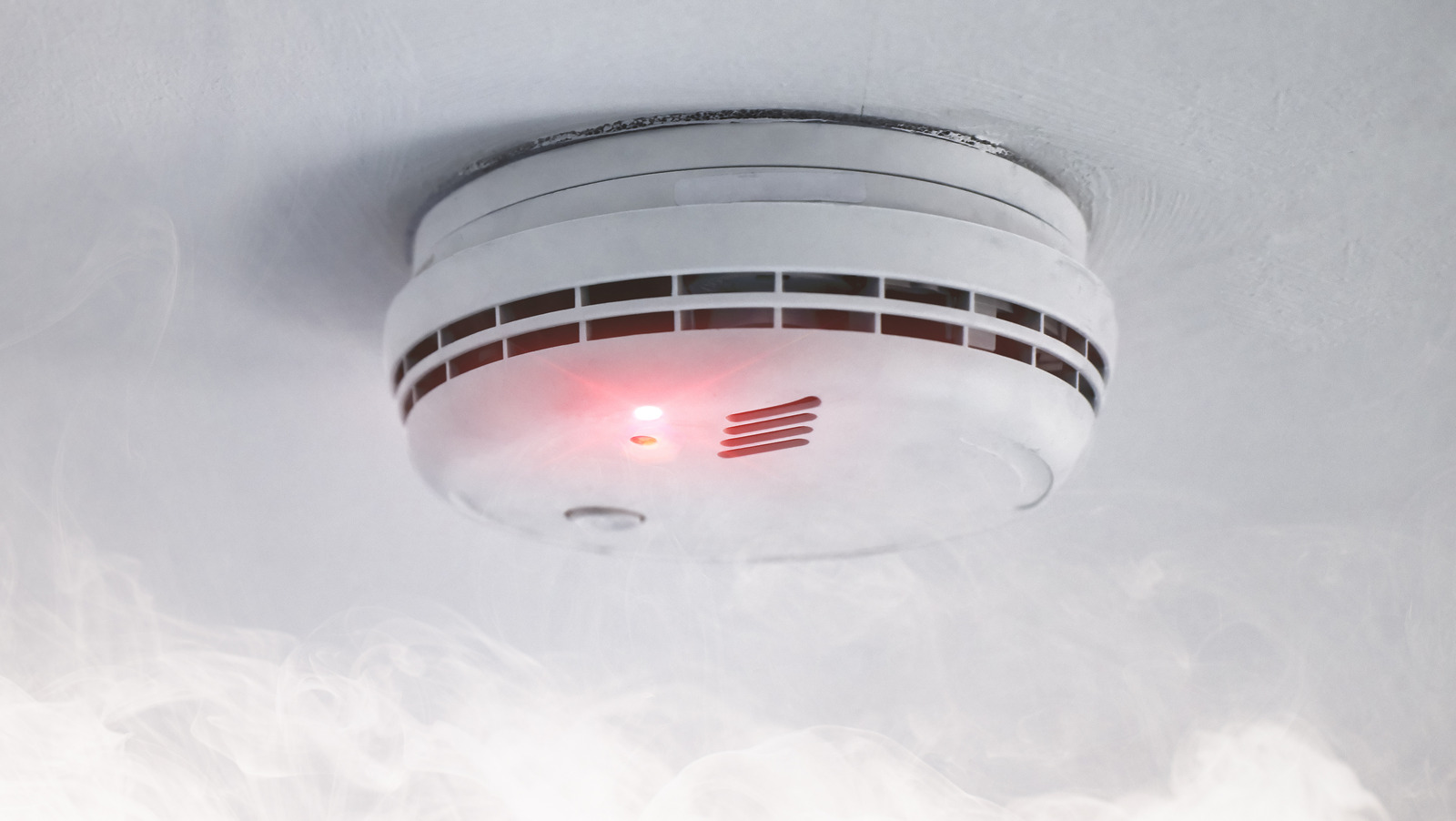
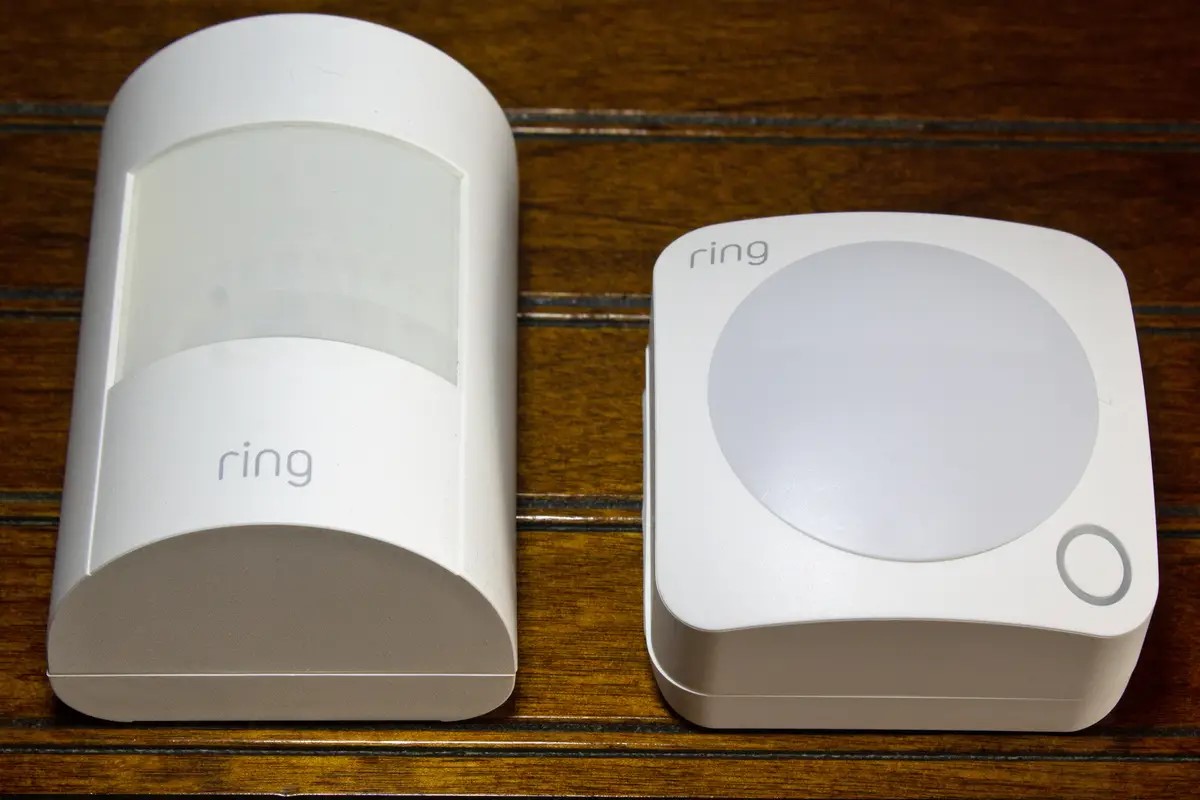
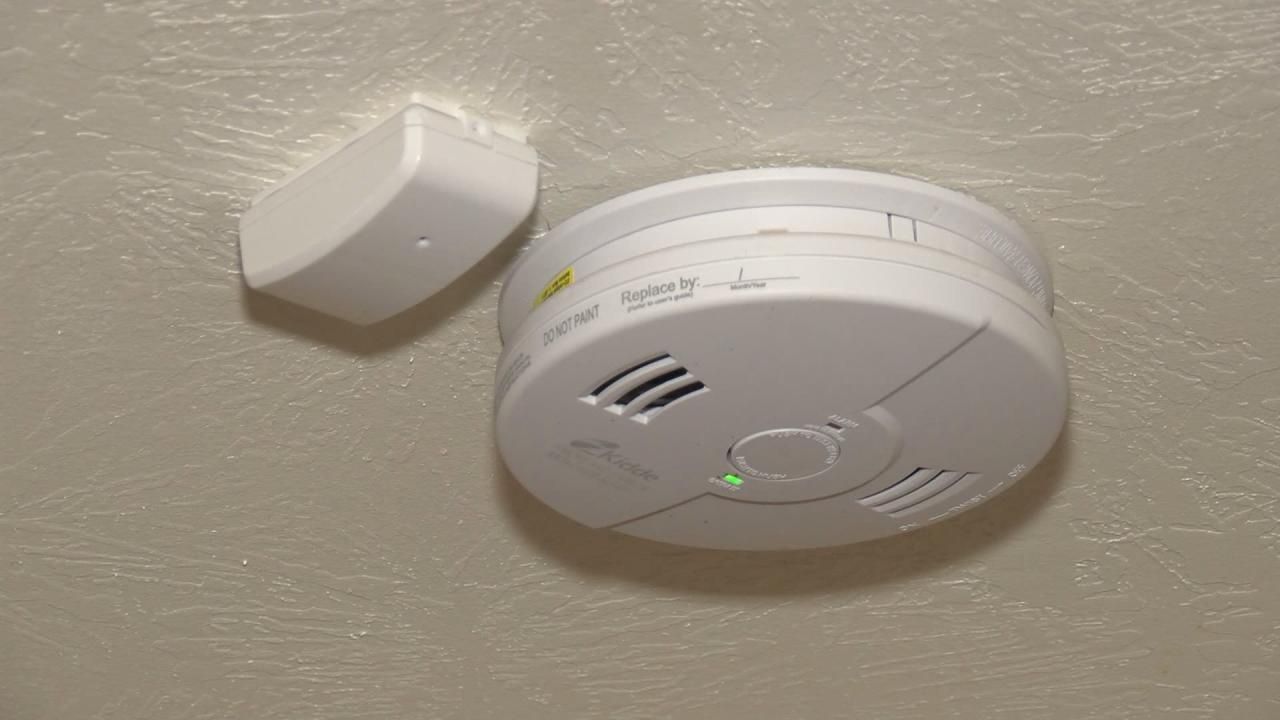

0 thoughts on “Why Would Smoke Detector Go Off Randomly”